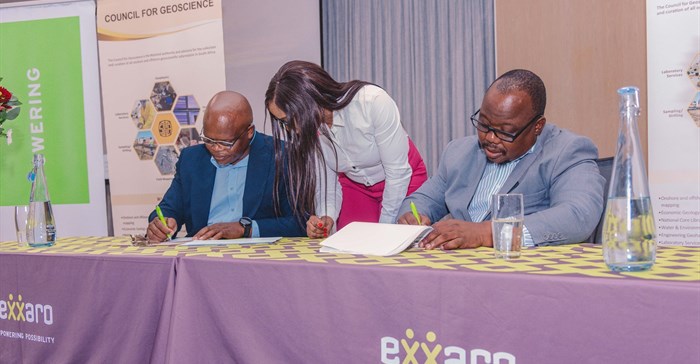
Top stories






More news

















CGS is tasked with the custodianship of geological information and knowledge. The MOU signifies an intention to collaborate on carbon capture, utilisation and storage (CCUS) initiatives. These initiatives aim to reduce greenhouse gas emissions, promote climate change adaptation and maximise social impact, in line with South Africa’s national commitments as stated in the Nationally Determined Contribution (NDC).
“Our strategy also aims for an integrated, multi-stakeholder approach to positioning the business for a resilient and sustainable future. We cannot act alone to create the impact we are aiming for, hence strategic partnerships such as the one with the Council of Geoscience, are key to ensure that our carbon neutrality goal become a reality,” said Exxaro chief of sustainable impact officer, Mongezi Veti.
CGS CEO, Mosa Mabuza, highlighted that the collaboration comes at a time when significant strides have been made on the technical front in implementing the CCUS scientific intervention. The CCUS project, a co-funded initiative by the South African Government and the World Bank and its partners, is intended to contribute significantly to the climate mitigation programme as well as energy security trajectory.
Exxaro’s response to climate change supports the country's energy transition programmes, balancing this with its role as a critical supplier to the coal-based electricity sector. The company's natural capital impacts encompass air quality, climate change resilience, energy, water security, waste management, biodiversity, environmental liabilities, land management and rehabilitation.
"We aim to draw upon the Council of Geoscience’s knowledge and expertise to promote positive, solutions-driven approaches to climate change mitigation and adaptation and to highlight transformational climate action," added Exxaro CEO Dr Nombasa Tsengwa.
“We have a long way to go, but the first steps are the most valuable as they help us gain momentum in this journey towards reducing our climate impacts.”